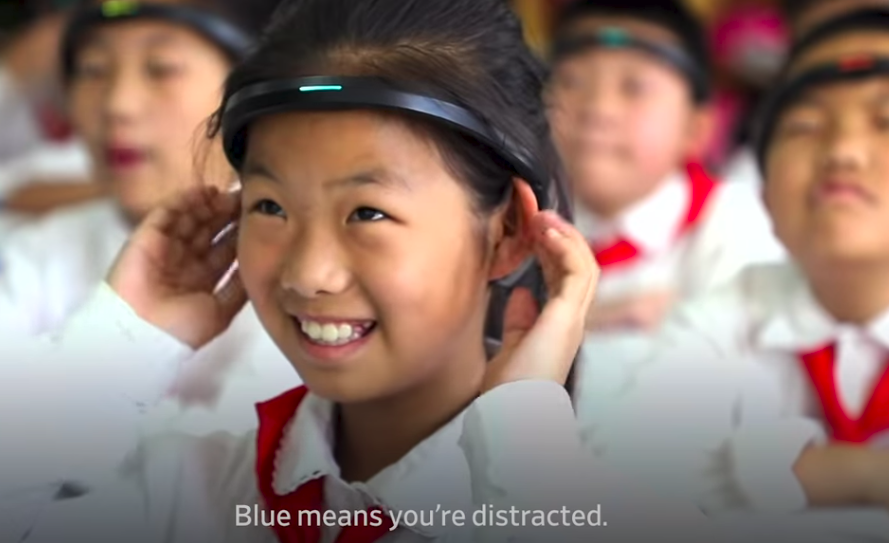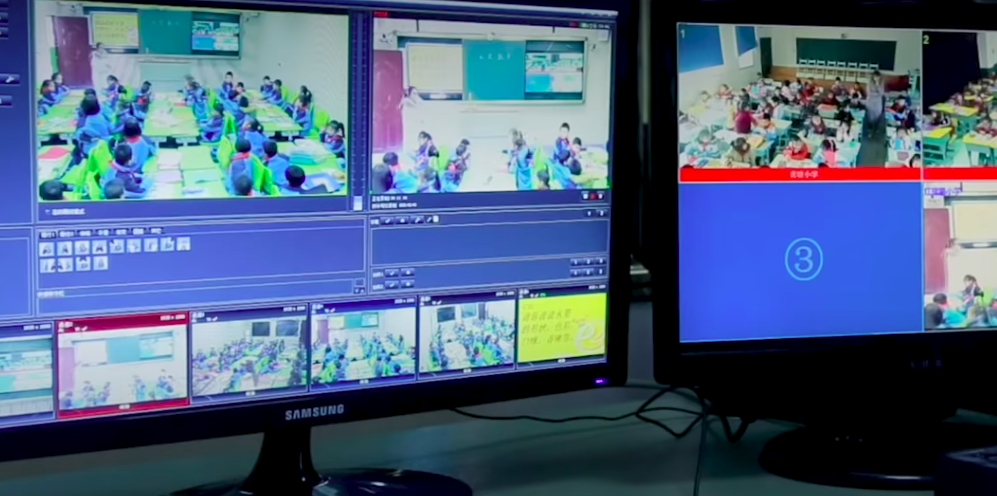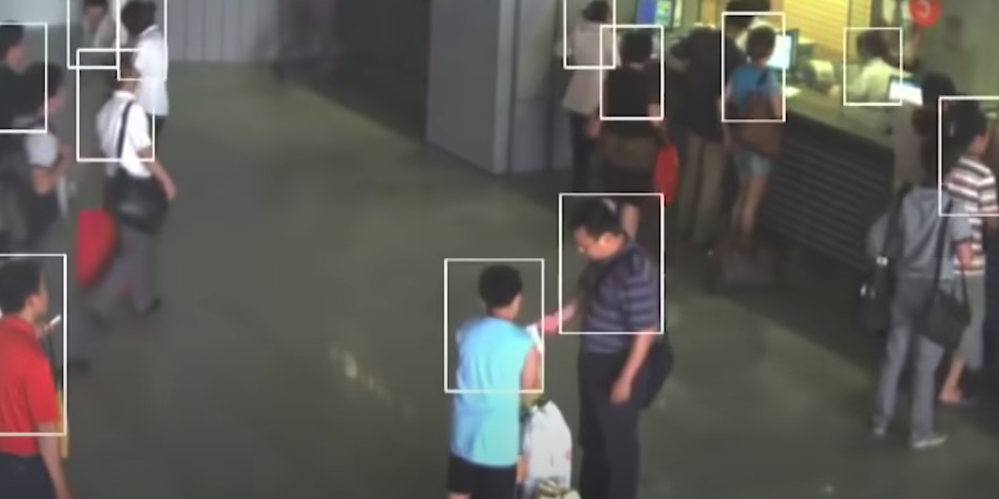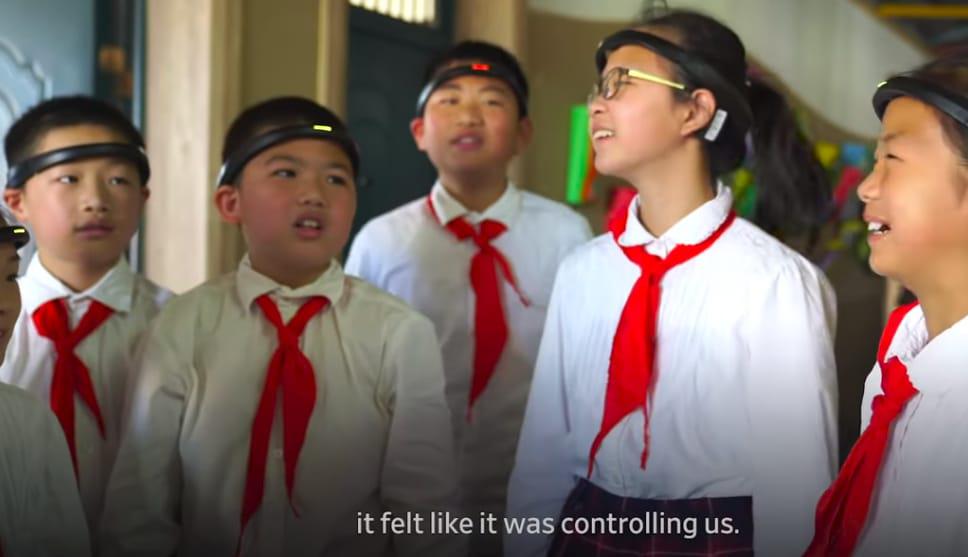An Alarming Application of A.I and Technology in China
With the outbreak of the Corona virus pandemic and Hong-Kong protests, practices of the Chinese government and state institutions have come under increasing scrutiny across the world. The brutal response of the Chinese state to democratic protestors in Hong-Kong has invited a lot of criticism from Human Rights organizations. The prevalent genetic chimeral (mixing of genetic material) research in bio-tech labs across the labs which are being attributed to the emergence of the COVID-19 coronavirus strain is an entire debate of its own. Here we shall focus on another aspect of modern Chinese society that should ring alarm bells to people living elsewhere as a sign of things to come if ethical standards in the use of modern technology are not maintained.

A student wearing one of the monitoring headbands explaining how colours displayed on it indicate to the observer her current mental state.
In recent reports published by several major media outlets, it was shown that a type of brain activity recognition technology is being trialled in Chinese schools. This means that young school-children have to wear headbands (as shown above) that monitor how attentive they are and if they are focused in the classroom. This may seem an innocent tool for increasing productivity to some, but it should also be considered that this is supplemented by a whole array of monitoring tools that are constantly collecting data and building predictive algorithms for each student.

Example of a monitoring station to oversee detailed classroom statistics, including student-level mental activity data.
Schools are now equipped with monitoring platforms that remind one of the command and control centers used in the military or air-force. The fact that these have been allowed to go ahead without prior study on the impact this could have on the social and mental development of children is alarming. The Chinese government justifies this in the name of increasing ‘national productivity’ and parents albeit without much of a choice seem to accept this as a necessary tool for their children ‘securing higher grades’.

Most public spaces in China have facial recognition, with individuals being assigned ‘social-credit’ scores
This new intrusive application of technology is just the latest in several measures such as the widespread use of facial recognition, citizen social credit scores, and facial recognition entry in public spaces. These have gone largely unnoticed by the general public. But with most large economies being heavily reliant on China and major corporations having a significant presence there, what happens in China should not go unnoticed. Indeed as an anonymous quote goes ‘What happens in China today, shows up in the world tomorrow’. Whilst the use of facial recognition technology in itself can be helpful for example in detecting criminals, what we see in China is a full-scale social credit system that is almost dystopian. There are plans to extend it to a point where Artificial Intelligence systems make decisions that decide whether a person is ‘socially acceptable’ to enter public buildings or not.
It should not take a child psychologist to infer that children wearing electromagnetic headbands for extended periods, and living in a reality where they are being constantly monitored and afraid to express themselves is not healthy for them as individuals and society as large. A large portion of natural development in a child is attributed to ‘free-play’ or unrestricted interaction with the surrounding environment. When this is stifled, what one ends up with are not children but order following drones.
And whilst the students themselves have raised complaints about this technology saying ‘they felt controlled by it’ and ‘it causes migraines’ these have been brushed aside by authorities and their teachers who feel it is but a natural step in the evolution of education. Such systems implemented in other parts of the world should immediately be challenged and extensive studies on the emotional and biological impact of wearing these monitoring head-bands are of utmost importance. It is hoped that with stronger condemnation the Chinese government does not expand this policy across the country. However, this looks bleak and one can only hope that such measures are not looked at positively as the ‘new normal’ in the post-coronavirus world.
